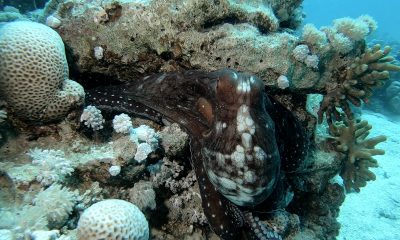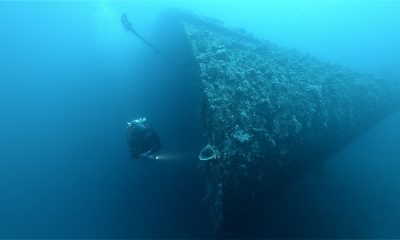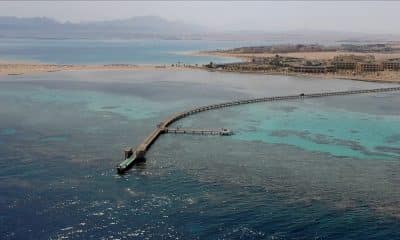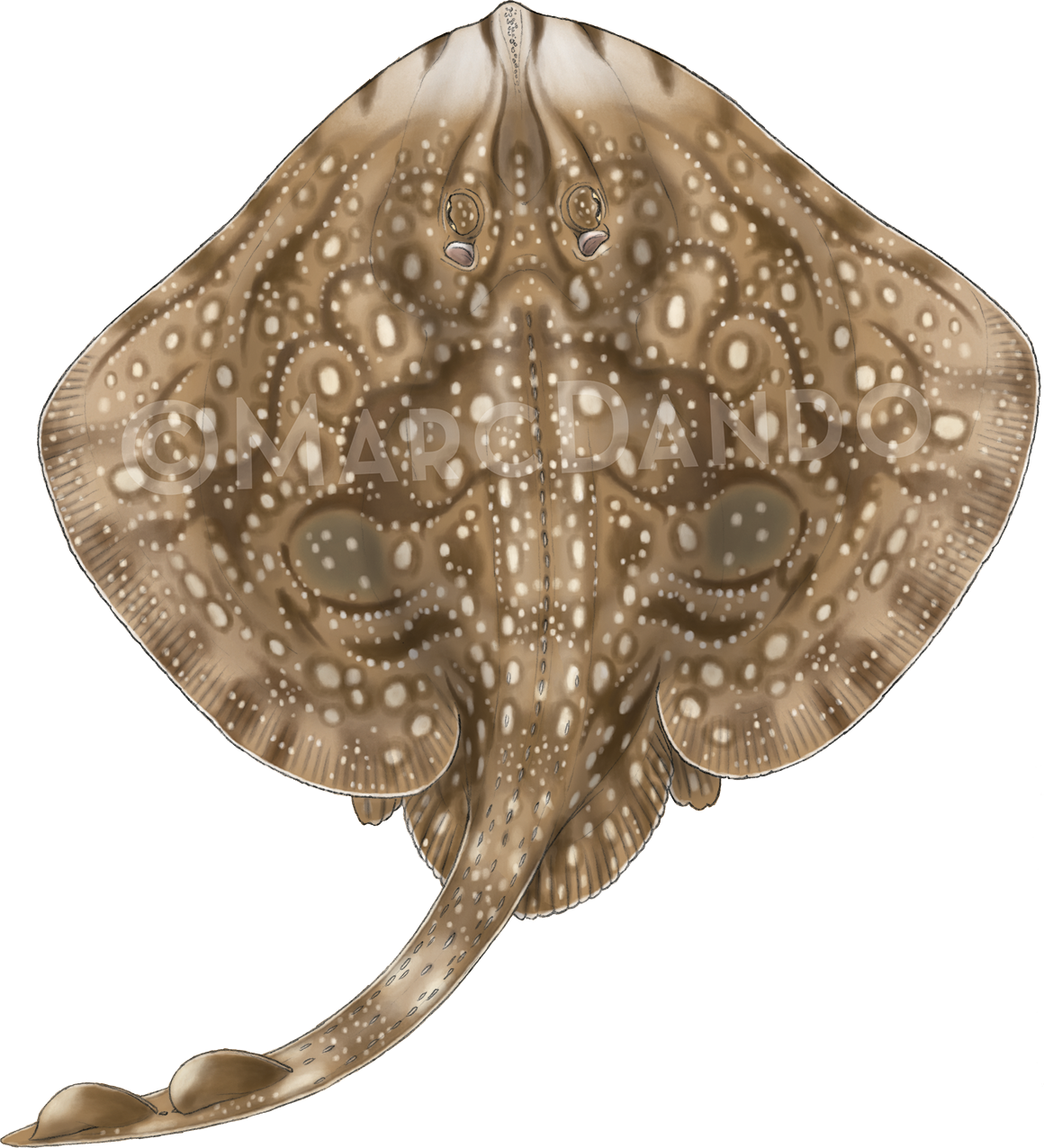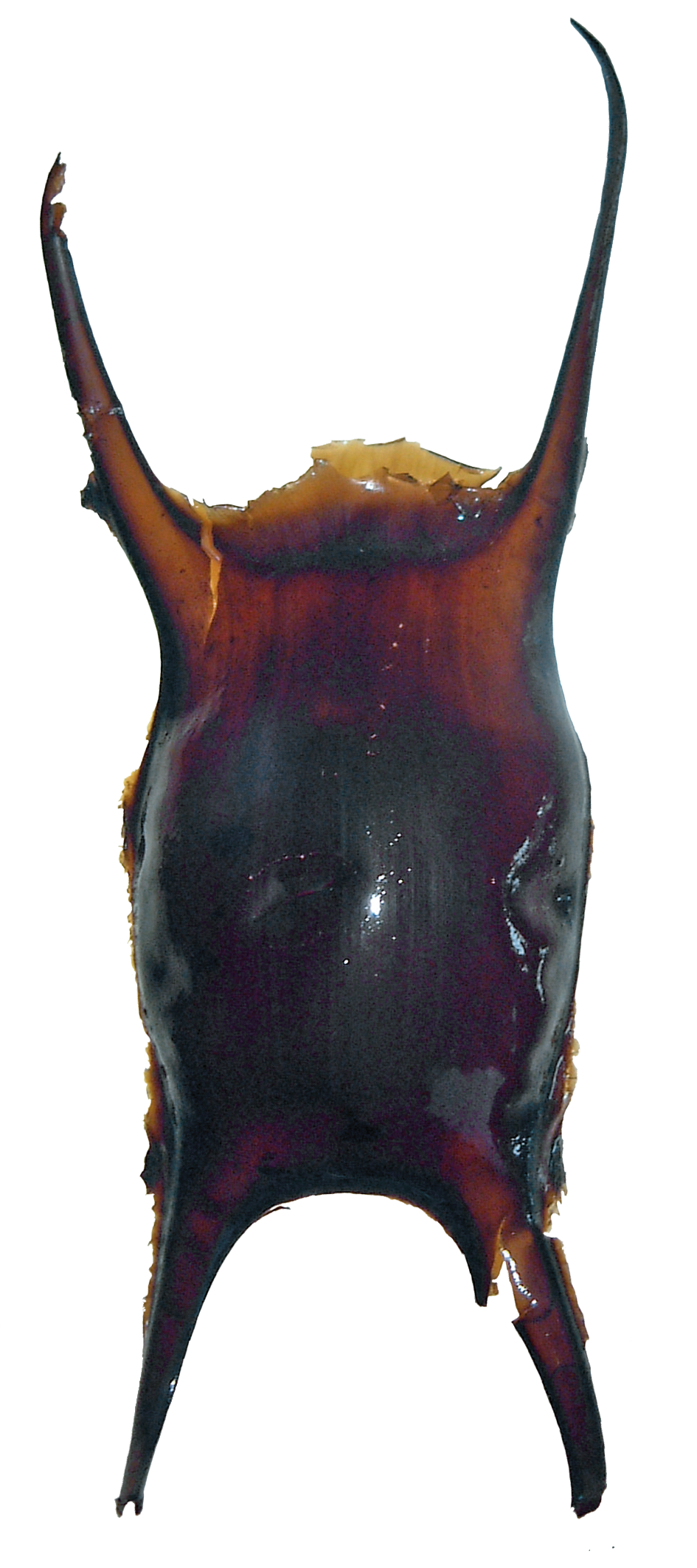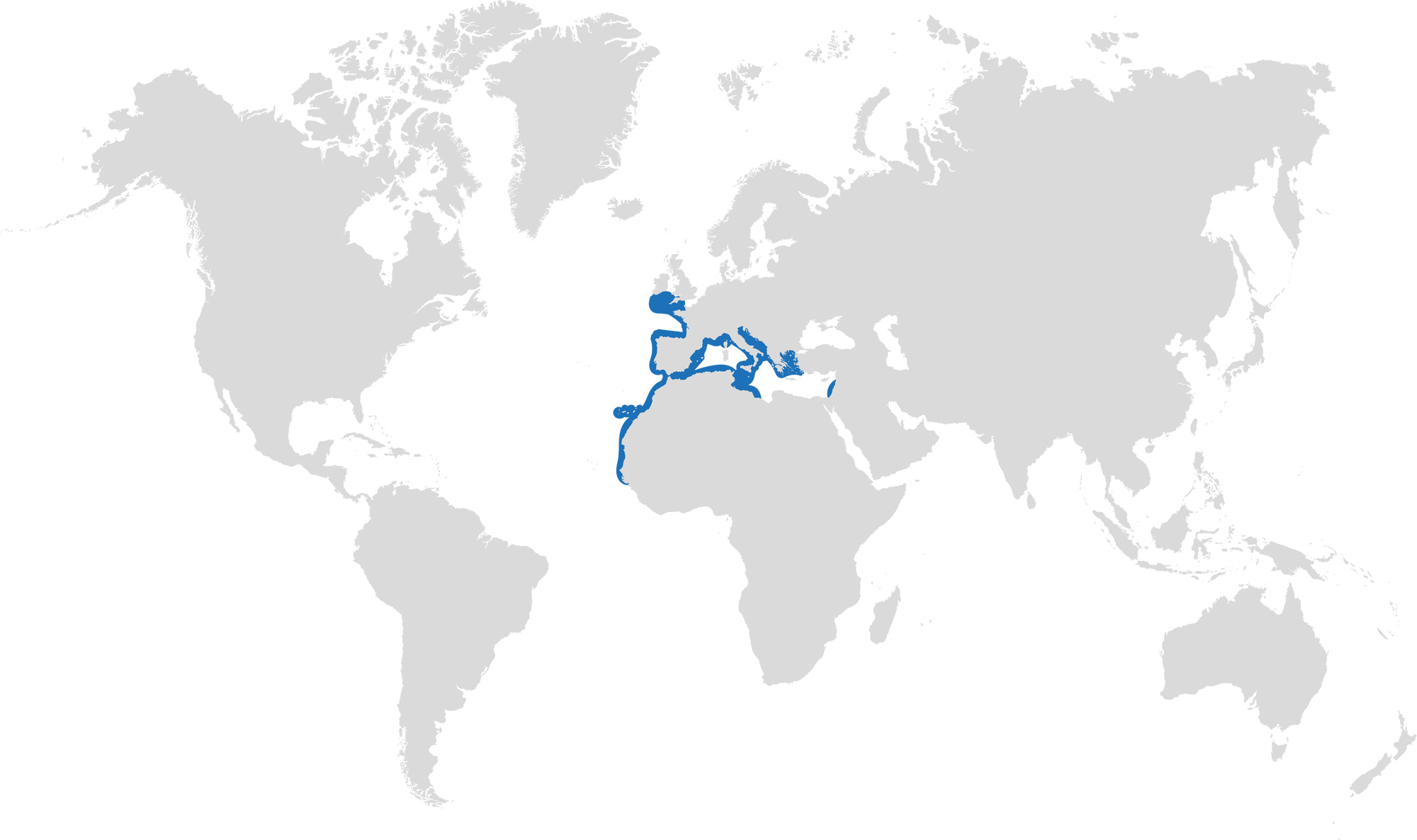Marine Life & Conservation Blogs
Fed Up With Fish Farms
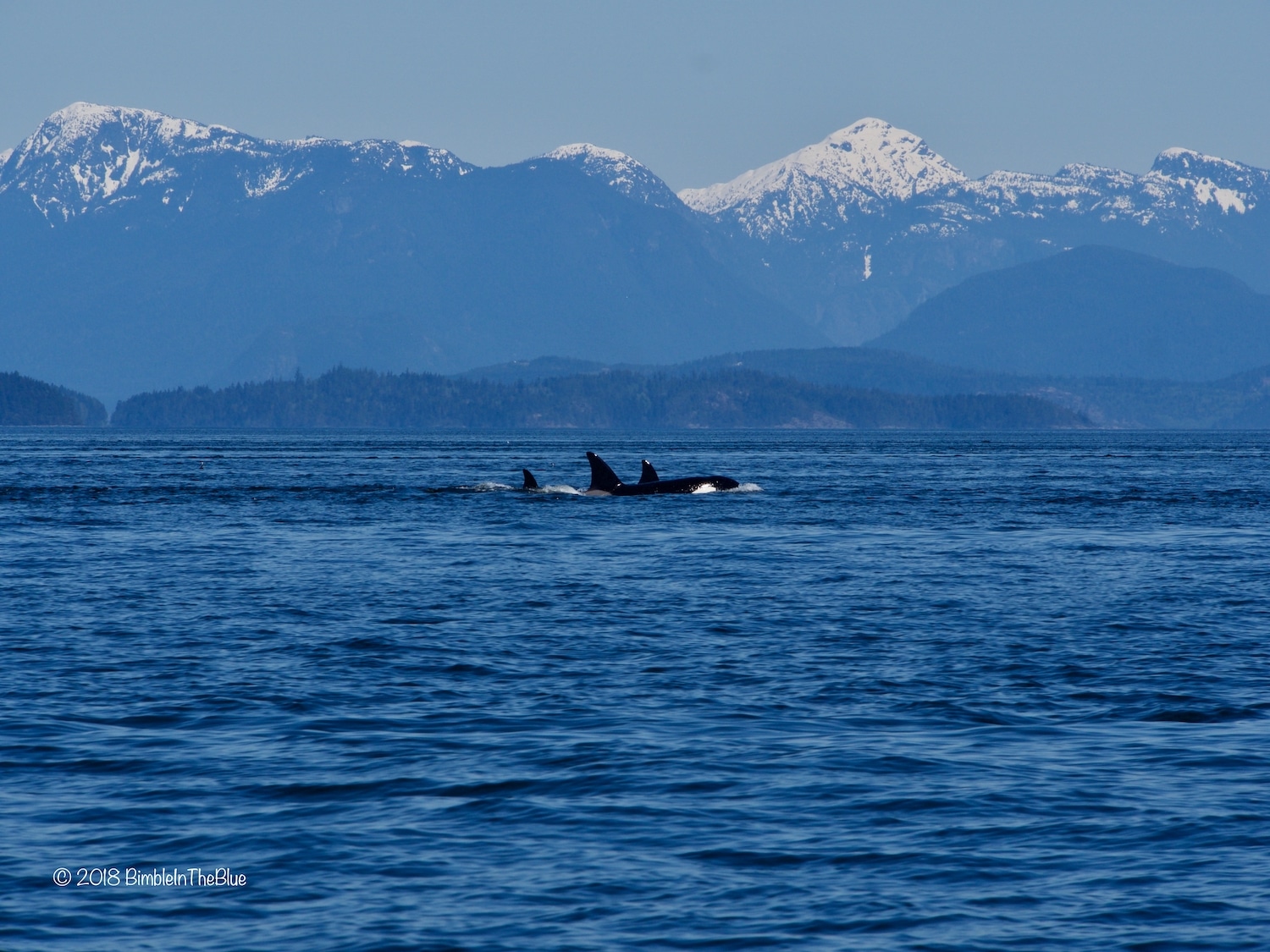
Last year I was incredibly fortunate to get to see Orcas in the wild; this was a real ‘bucket list’ moment for me and an absolute highlight of a round the world trip Mike and I had just completed. Reminiscing on this experience the other day I was saddened by the thought that this may not be possible in the future if conservation efforts are not given a higher priority.
It is an incredible privilege to see these magnificent and intelligent creatures going about their natural behaviours, as we were able to on our trip to Vancouver Island in the stunning surroundings of the Salish Sea. The main purpose of our trip was, as ever, to go diving, however, the opportunity to go on a wildlife watching trip in an area famed for its cetaceans, pinnipeds and birdlife was not one we were going to miss!
Vancouver Island is a great place to see Orcas, as well as humpback whales, dolphins and other highly sentient creatures. If you enjoy watching wildlife, on or beside the sea surrounded by mountains and forests, then this really is paradise. Incredibly sadly though, like many of our most precious and stunning natural environments, it is under threat. I’m focusing on specific threats to Orcas here, but of course, many threats to this species also effect a much wider range of organisms. Helping Orcas, which are intelligent and long-living apex predators, benefits the entire ecosystem as a whole.
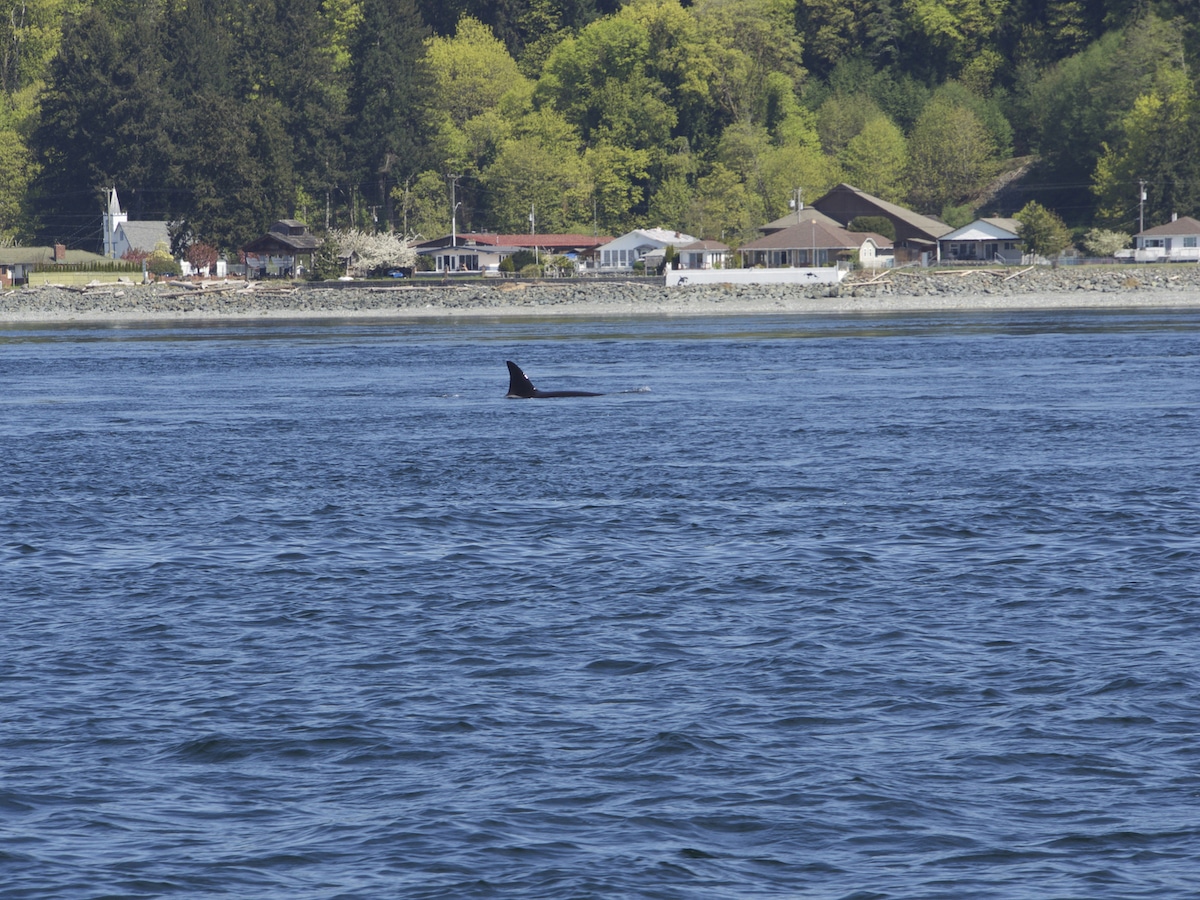
Extensive research has shown threats to Orcas include, but are not limited to:
- Noise pollution from boats and sonar interfering with Orca’s hearing, communication and hunting.
- Pollution of water sources resulting in poisoning as toxins get into fish and accumulates at the top of the food chain.
- Overfishing and dams which have depressed the wild salmon stocks. (The lack of wild salmon – many Orca’s main food source – means starvation for them. Some Orcas hunt pinnipeds, but pinnipeds are also fish eaters, so a lack of fish affects their numbers and a knock on effect on Orcas.)
- Fish farming has caused huge amounts of pollution, disease, low oxygen environments, and escape of non native species.
Fish farming is probably the biggest issue as the top three points can all be linked to the fourth.
1. Fish farms are patrolled by boats that create noise pollution.
2. Huge amounts of pollution come from fish farms.
3. Overfishing is increased by the demand for fishmeal and fish oil in pellets fed to farmed salmon.
Though they are not solely responsible, even a single large fish farm causes a disproportionately high environmental issue.
Worldwide there are more fish farmed than cattle and this causes massive environmental problems. Fish farming was once viewed as ‘taking the pressure off’ wild populations but sadly the opposite is true.
Salmon are the most commonly farmed fish. They are fed pellets made from commercially harvested wild fish and it takes approximately three times the amount of wild fish to raise one farmed salmon. Definitely not good for wild fish stocks.
Fish are kept in densely stocked pens, so to avoid disease and malnutrition they are fed antibiotics, pesticides and vitamins. Uneaten pellets and concentrated waste from the farmed fish goes directly into the environment. Large quantities of these pollutants become concentrated in small areas around the farming pens, causing eutrophication (pollutants contain nutrients that make algae bloom and the algae use up all the oxygen, creating a dead zone). Antibiotics and pesticides that can poison the surrounding water and accumulate in fish eating species. There is also considerable worry that disease and parasites present in densely populated fish farms can spread to the native wild fish populations.
Economy, jobs and shareholder profits are all important in the modern world, and are often cited when big business meets conservation. The issue is, if we ruin our natural environment, where will fish farms get the fish for fishmeal pellets? What do we do if all the water is polluted? Any industry that damages the environment so badly is not sustainable, so their profits are not sustainable. It doesn’t seem to make sense from a long-term business standpoint or a conservation one.

This may all seem a long way away, if you were not contemplating a little sojourn across the globe, however, our actions in our neighbourhood supermarket can make a huge difference to the future of Orcas and their fellow marine species.
Despite being in the UK, ordering a fillet of farm-reared salmon (often labelled as King Salmon or Farmed Atlantic Salmon) has severe consequences. By eating so much salmon in comparison with other fish, we create a demand for more than can be sustainably provided by our fisheries, leading to more demand from fish farms.
We can have a direct impact by changing our diet a little. We could choose not to eat fish at all, or eat it less often. Perhaps more realistically, we could pay a little bit more for sustainably caught local fish or simply choose something besides the most intensively fished and farmed species (such as salmon, tuna, cod and haddock). The Good Fish Guide by the Marine Conservation Society – www.mcsuk.org/goodfishguide/search – is an excellent place to start. All of us together can make a big difference if we all take the small step of changing our consumer habits slightly. In addition to helping Orcas, a small change in our diets will benefit many other species. By creating less pollution and a healthier wild fish population, the whole ecosystem benefits hugely.
Put simply, fish farming is a global problem: in Scandinavia, New Zealand and South America similar issues are affecting wildlife. Much closer to home are the fish farms of Scotland and our northern isles, where our traditional fishing industry is already struggling and our sea is much more barren and polluted than it should be. The great news here is that we have the power to force the change, simply by shopping a little wiser!
Unlike most conservation headlines we see, the story of Orcas is not all doom and gloom. In Canada, B.C. First Nation leaders have been taking their concerns to the Canadian government in order to remove fish farms from their traditional territory and talks are currently underway. In 2018, Washington State in the U.S. banned fish farms in their waters, after a series of incidents. If the ruling stands it will mean the current farms will not have their licences renewed once they expire in 2022. It is hoped that more positive news of this kind will follow in other countries soon.
So as a passionate conservationist that’s my crusade of the day: let’s help the Orcas. Orcas are awesome, they are a joy to behold, as is the incredible underwater environment they inhabit. If you get the opportunity I cannot recommend a trip to see them highly enough! And a few small changes in our habits can help preserve that opportunity for future generations.
Marine Life & Conservation Blogs
Creature Feature: Undulate Ray
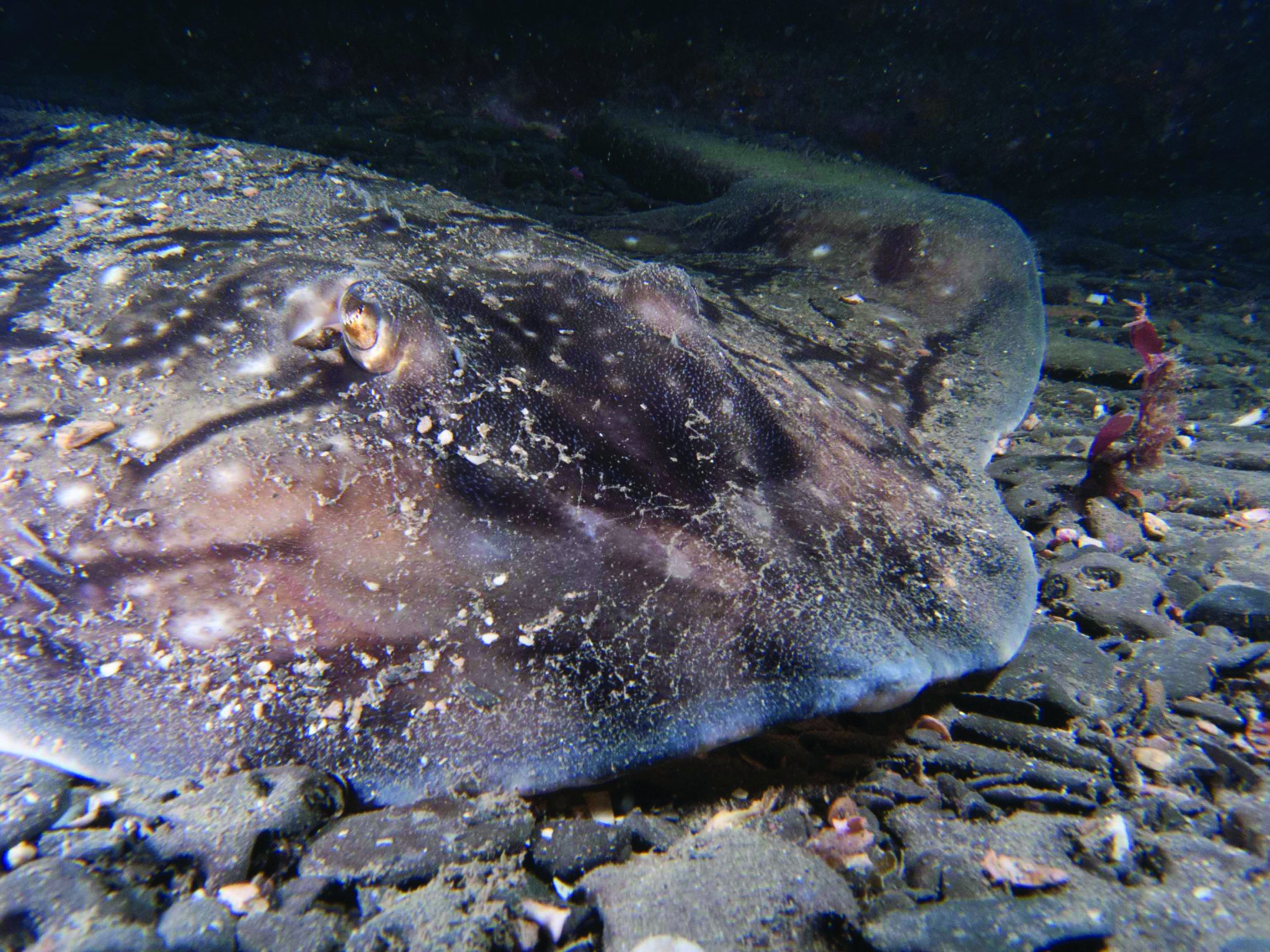
 In this series, the Shark Trust will be sharing amazing facts about different species of sharks and what you can do to help protect them.
In this series, the Shark Trust will be sharing amazing facts about different species of sharks and what you can do to help protect them.
This month we’re looking at the Undulate Ray. Easily identified by its beautiful, ornate pattern, the Undulate Ray gets its name from the undulating patterns of lines and spots on its dorsal side.
This skate is usually found on sandy or muddy sea floors, down to about 200 m deep, although it is more commonly found shallower. They can grow up to 90 cm total length. Depending on the size of the individual, their diet can range from shrimps to crabs.
Although sometimes called the Undulate Ray, this is actually a species of skate, meaning that, as all true skates do, they lay eggs. The eggs are contained in keratin eggcases – the same material that our hair and nails are made up of! These eggcases are also commonly called mermaid’s purses and can be found washed up on beaches all around the UK. If you find one, be sure to take a picture and upload your find to the Great Eggcase Hunt – the Shark Trust’s flagship citizen science project.
It is worth noting that on the south coasts, these eggcases can be confused with those of the Spotted Ray, especially as they look very similar and the ranges overlap, so we sometimes informally refer to them as ‘Spundulates’.
Scientific Name: Raja undulata
Family: Rajidae
Maximum Size: 90cm (total length)
Diet: shrimps and crabs
Distribution: found around the eastern Atlantic and in the Mediterranean Sea.
Habitat: shelf waters down to 200m deep.
Conservation Status : As a commercially exploited species, the Undulate Ray is a recovering species in some areas. The good thing is that they have some of the most comprehensive management measures of almost any elasmobranch species, with both minimum and maximum landing sizes as well as a closed season. Additionally, targeting is entirely prohibited in some areas. They are also often caught as bycatch in various fisheries – in some areas they can be landed whilst in others they must be discarded.
IUCN Red List Status: Endangered
For more great shark information and conservation visit the Shark Trust Website
Image Credits: Banner – Sheila Openshaw; Illustration – Marc Dando
Blogs
Guarding Against Coral Invaders
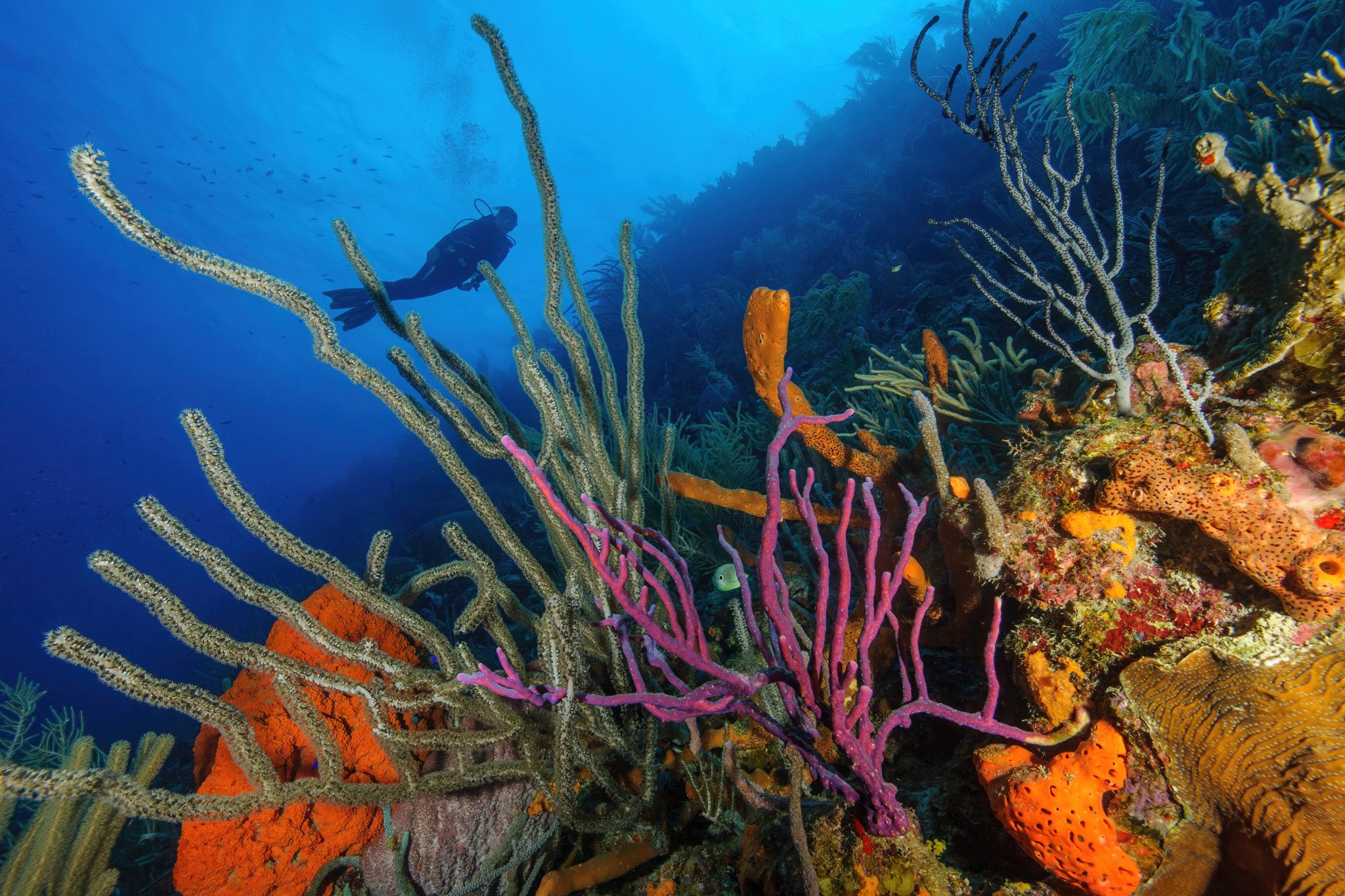
Protecting (Dutch) Caribbean Reefs from Unomia stolonifera
Recent reports highlight the concerning spread of the invasive soft coral, Unomia stolonifera, currently devastating Venezuela’s marine ecosystems and detected in Cuba. With the potential threat of its expansion to the (Dutch) Caribbean islands, urgent action and awareness are essential to safeguard marine biodiversity and local economies from possible catastrophic consequences.
Invasive species are animals or plants from another region of the world that don’t belong in their new environment. These species can have major ecological effects by decimating native flora or fauna. They can also cause large economic losses and impact human health. Invasive species also pose a significant threat to marine ecosystems worldwide, including the Dutch Caribbean. Among these invaders is the octocoral species Unomia stolonifera or “Pulsing Xenia”, originally from the Indo-Pacific. With its rapid growth and lack of natural predators, this species can outcompete native species and disrupt fragile marine habitats such as seagrass beds and coral reefs.
Background
The invasive soft coral U. stolonifera was first identified in 2014, off the coast of Venezuela. It is believed to have been introduced via the illegal aquarium trade. Since this species can reproduce sexually and asexually (or fragment), even small pieces can regenerate to spread. Once introduced it quickly took over shallow reefs and hard substrate at depths of 0-50 meters, outcompeting local corals and seagrass for space. Follow on surveys found that this coral species exhibited average percentage cover as high as 80%, vastly outcompeting native corals. In highly colonized areas, fish are disappearing due to loss of habitats.
In 2022, during a survey conducted in Cuba by the University of Havana, an unknown octocoral was discovered which was later identified as the invasive Unomia stolonifera. It is suspected that the coral larvae arrived in ballast water from fossil fuel ships originating from Venezuela, as nearby sites adjacent to Venezuelan ports have been heavily affected by the invasion.
How to help
Prevention through continuous monitoring, particularly in high-risk areas such as marine harbors and oil facilities, is paramount. Early detection plays a pivotal role in mitigating the threat posed by Unomia stolonifera.
The public’s involvement and awareness are also vital. Local communities, recreational divers, tourists, and all stakeholders are urged to participate in early detection efforts by reporting sightings (photo, location and date) of this invasive coral to their respective Protected Area Management Organization (PMO’s)- the Fundacion Parke Nacional Aruba (FPNA), STINAPA Bonaire, CARMABI Curaçao , Saba Conservation Foundation (SCF), Nature Foundation St. Maarten (NFSXM) and St. Eustatius National Parks (STENAPA). If an invaded area is confirmed, follow the recommendations by the local PMO’s.
Keys to Success
Despite the challenges, early detection is key to mitigating the threat posed by Unomia stolonifera. With continued vigilance, research, and community engagement, there is hope for containing this potential issue before it becomes a major threat.
About the DCNA
The Dutch Caribbean Nature Alliance (DCNA) supports (science) communication and outreach in the Dutch Caribbean region by making nature related (scientific) information more widely available through amongst others the Dutch Caribbean Biodiversity Database, DCNA’s news platform BioNews and through the press. This article contains the results from several scientific studies but the studies themselves are not DCNA studies. No rights can be derived from the content. DCNA is not liable for the content and the in(direct) impacts resulting from publishing this article.
-

 News3 months ago
News3 months agoHone your underwater photography skills with Alphamarine Photography at Red Sea Diving Safari in March
-

 News2 months ago
News2 months agoCapturing Critters in Lembeh Underwater Photography Workshop 2024: Event Roundup
-

 Marine Life & Conservation Blogs2 months ago
Marine Life & Conservation Blogs2 months agoCreature Feature: Swell Sharks
-

 Blogs2 months ago
Blogs2 months agoMurex Resorts: Passport to Paradise!
-

 Blogs2 months ago
Blogs2 months agoDiver Discovering Whale Skeletons Beneath Ice Judged World’s Best Underwater Photograph
-

 Gear News3 months ago
Gear News3 months agoBare X-Mission Drysuit: Ideal for Both Technical and Recreational Divers
-

 Gear Reviews2 months ago
Gear Reviews2 months agoGear Review: Oceanic+ Dive Housing for iPhone
-

 Marine Life & Conservation2 months ago
Marine Life & Conservation2 months agoSave the Manatee Club launches brand new webcams at Silver Springs State Park, Florida









